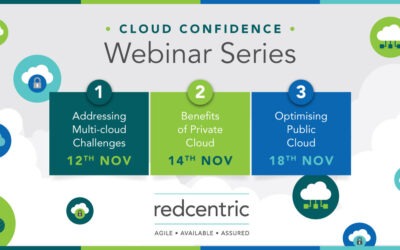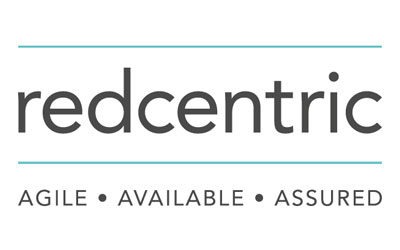With the complex nature of modern digital technologies, every business will need to take advantage of hybrid technologies to properly host their data and applications without having to compromise on performance. It might feel like Hybrid IT and Hybrid Cloud can be used interchangeably but understanding the difference between these two types of IT will equip you to choose the platform that will best support your business.
What is Hybrid Cloud?
Hybrid Cloud is an IT system consisting of more than one cloud platform integrated together to transfer data and applications across.
Most typically hybrid cloud will be a public cloud (used for flexibility) combined with a private cloud (used for security and reliability) to achieve an IT system that balances the advantages of these different types of cloud. But the phrase Hybrid Cloud applies to any multi-cloud setup. Many businesses will have several private and public clouds supporting their different applications and data storage needs.
What is Hybrid IT?
Hybrid IT is an IT system consisting of a private hardware platform integrated in with another platform, hosted on either private hardware, public cloud or private cloud.
Hybrid IT is often deployed by a business when they don’t want to get rid of their existing private hardware solution but realise that they have IT needs outside of what it can offer. Integrating in an additional platform allows them to pursue IT growth while causing minimal disruption to existing applications. A Hybrid IT system also allows a company to grow its IT, even when it has specialist requirements or high-security needs. This means they retain complete control over their private hardware but can take advantage of other platforms to keep up with changing business needs.
The difference between Hybrid Cloud and Hybrid IT
The key difference is that Hybrid Cloud is a 100% cloud-based solution, versus Hybrid IT which will have an element of private hardware and thus a wider variety of platforms integrated in.
It might seem like a small difference between the two systems, but whether some private hardware is retained or not has a huge impact on the transition towards your hybrid system, and what your long-term goals will be for your IT.
Moving to a 100% cloud-based solution with Hybrid Cloud requires a virtualisation strategy for every IT application and data storage and means future solutions will need to be found within a public or private cloud environment.
Whereas, with Hybrid IT, keeping some private hardware allows for a more gradual transition since you can keep all of your existing applications running. Those that are being virtualised can then be moved over to the cloud one at a time. And in the future the business is free to take on projects that have security needs or other specific requirements that need to be supported with private hardware.
Should you use Hybrid Cloud or Hybrid IT?
Which hybrid system you choose for your IT depends on the current state of your IT, and your long-term IT goals since they each come with their own advantages and drawbacks.
Hybrid Cloud allows you to pursue a 100% cloud solution, with the flexibility and lack of responsibility for maintenance that comes with that. It does require you to move everything to a cloud environment, but the scale of that project will depend on the state of your existing systems and how legacy your applications are.
You should look at pursuing Hybrid Cloud if your business:
- Is looking to go 100% cloud-based
- Doesn’t have any legacy applications that can’t be virtualised
- Wants to shift IT focus away from everyday maintenance
- Isn’t looking to take on any highly specialised projects in the near future
Hybrid IT allows you to retain some private hardware, which means it has a wider variety of platforms you can take advantage of, particularly valuable if you have data or applications that you want total control over. In the long-term you’ll have a complete choice over what platforms host your new and existing applications, but the day-to-day maintenance of your IT team will be higher than with a Hybrid Cloud solution.
You should look at pursuing Hybrid IT if your business:
- Has some legacy or highly secure applications that can’t move to the cloud
- Is happy to retain hardware responsibility long term
- Wants freedom in the future to take advantage of any IT platform
Going hybrid with a helping hand
Of course, whether you go for Hybrid Cloud or Hybrid IT, this isn’t a transition you need to make alone. Unless you’re a very big company, you’ll be working with a cloud provider to launch your cloud solution, so it’s worth talking to them about how they can handle the migration of your systems.
And if you’ve got legacy systems, or sensitive data that you need to keep on private hardware for security reasons, you can also get valuable support for that with colocation services. Working with a data centre that offers a full range of managed infrastructure solutions means you could still have a single provider for all the colocation and cloud platforms in your Hybrid IT services. And if you want to talk to an award-winning data centre operator that offers personalised Hybrid IT and Hybrid Cloud services, get in touch with us.



